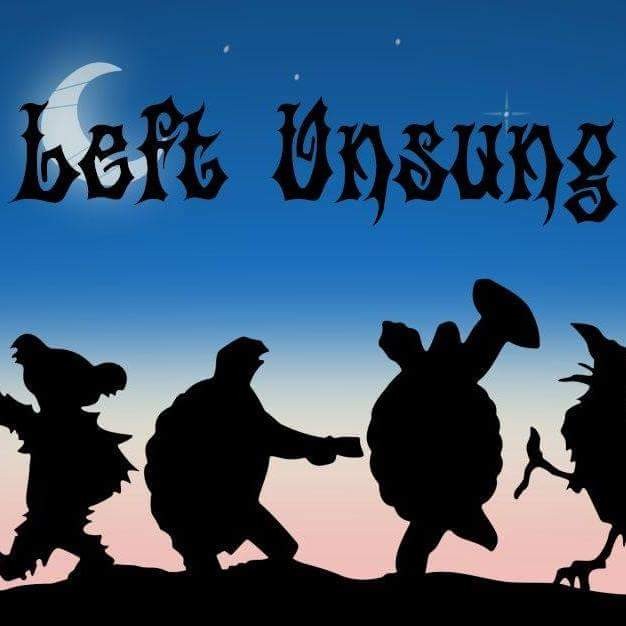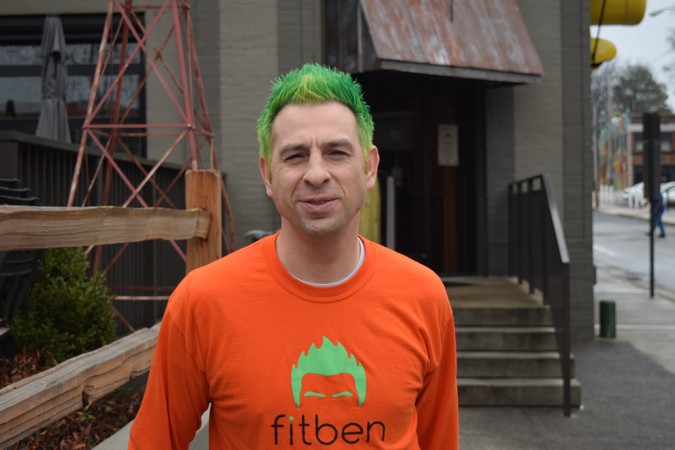Confusion reigned on Summer Avenue.
The August heat shimmered off the asphalt in Binghampton where cars were lined up nine-deep in the westbound lane. The cars tailed a line snaking around Memphis Light, Gas & Water’s (MLGW) community office next door to a Dixie Queen. Dozens milled around on foot outside the office with paper bills and cell phones in hand, tempers showing behind furrowed brows.
Their power had gone off at home and they all hoped to talk to someone with MLGW to get it back, but their cell phones only gave them busy signals when they called the help line. The online payment page was jammed. When those in their cars reached a payment window on the west side of the office, they found no one, only blacked-out panes with signs reading “this is not a drive-thru window. Please use drop box>>>>.” Whatever that meant.
 Kirill Shalmanov | Dreamstime.com
Kirill Shalmanov | Dreamstime.com
No one from MLGW was on site to aid people with bills, questions, and payments. It was 4:50 p.m. on Monday, August 24th, and the posted hours said the office was supposed to be open until 5 p.m. Only official-looking security guards were there to keep the traffic moving, to tell people to keep calling the number, and to receive the business end of tense frustrations.
“Mane, this is fucking bullshit, y’all!” one man yelled to the crowd gathered outside the office. “This is some fucked-up bullshit!”
Temperatures hit 91 degrees on the day Memphis’ hometown utility decided to cut the power from 9,169 customers because they had not paid their bills. They cut their power even though it was in the heat of the summer and Memphis and the world were in the grip of a global pandemic. Dark times suddenly got even darker.
“Listen here,” said a man waiting in that MLGW payment line with his wife. He held his cell phone, bleating a busy signal, out the window. He wondered aloud if the MLGW number had been disconnected and if its website was down. The man said he works nights and was home in bed when the power went out. He only knew about it when his phone buzzed an alert from his alarm company. While he was planning to go to work that day, his wife would be left home in the heat with five dogs. She said she had no idea what she was going to do.
“I heard they weren’t supposed to be turning the power off,” the man said. “I’ve been keeping in contact [with MLGW], trying to keep my bill paid, but, y’know. Guess I’m just gonna wait in line and see if anybody can tell me something.”
MLGW suspended cutoffs on March 13th. It was part of the utility’s Pandemic Plan that also included a “no handshake” policy for employees and a suspension of business travel.
“Our customers are struggling at this time with a lot of uncertainty,” MLGW president and CEO J.T. Young said that day at a news conference. “We have made a decision for the time being that, until further notice, we will suspend disconnects for non-payment for water, gas, and electric services.”
On April 3rd, MLGW waived late fees on any bills issued that day until further notice. As of last week, MLGW had waived $7 million in late fees.
New virus case counts lowered and held in late May and early June. Memphis came out of the Safer at Home lockdown and entered Phase I of the Back to Business Plan, then Phase II. As the economy began to re-emerge, so, too, did MLGW.
Young told MLGW board members on June 17th that he and his team were preparing to restart disconnections. He said he wanted to give customers time to work on payments and that “we don’t want our customers to get into too deep of a hole of debt.” He promised he’d make an announcement on the decision “fairly soon.” It came two days later.
“As our community begins to reopen, MLGW must now resume our normal policies, as many utilities across the country have done,” read a statement from the utility on June 19th. “Customer disconnects will resume Monday, August 3rd.”
If MLGW had pulled the plug on every residential customer eligible for a cutoff on June 30th, 10 percent of the homes it served would have gone dark. By that time, MLGW was owed $30 million in past-due bills. In a normal year, it would have been owed around $14 million.
At a June 30th board meeting, Jim West, MLGW vice president and chief customer officer, rolled out a number of programs to help customers pay their bills and keep their lights on. A deferred billing plan would spread a customer’s past due amount over 12 months. The clock was reset for those already on a payment plan. Down payments for extended payment plans for residential customers with hardships were lowered from 25 percent to 15 percent. Deposits for reconnections would be spread over five months. “In the end, we’re trying to do everything we can to help our customers avoid disconnections,” West said at the time.
But before that initial August 3rd cutoff date, MLGW halted cutoffs again on July 30th — until August 24th.
“Many of our customers are facing major financial challenges during this pandemic and, while we must still run the business, we want to give our customers additional time to make payment arrangements and seek bill payment assistance if needed,” Young said in a statement at the time.
However, as promised, Monday, August 24th came, and on that 91-degree Monday, MLGW cut power to 9,169 customers. About 30,000 customers were behind on their bills. About 15,000 were eligible for a cutoff.
“My daughter called me and said the utilities were off,” said a man sitting in the MLGW payment line on Summer two weeks ago. “I looked at the amount, and it was $650. I thought, well, I’ll shoot over there and see what’s going on. This is the only place you can pay in person. I don’t think this is right, turning off people’s power right now. Clearly, they should reconsider this and think about pushing this back out another month or two, or maybe the beginning of the year.”

The Memphis poverty rate in 2018 was 27.8 percent, according to the latest Memphis Poverty Fact Sheet produced by researchers at the University of Memphis. The figure was climbing in 2019. The city usually finds its way to or near the top of lists of America’s poorest cities.
The Memphis-area unemployment rate more than tripled from 3.8 percent in March to 12.8 percent in April, according to the United States Bureau of Labor Statistics. The figure eased a bit (10.7 percent in May and 11.9 percent in June) but spiked to 13 percent last month. (State data puts the Memphis-only rate at 16.9 percent). That meant 82,000 Memphis-area workers were without a job last month. A year earlier, in July 2019, the Memphis unemployment rate was 5.1 percent and was 4.6 percent for Shelby County.
To some, MLGW’s cutoffs added a burden to a vulnerable and already burdened segment of society. Critics have abounded — before, during, and after the disconnections began. To cut utilities here and at a time like this shows “callousness,” says Elena Delavega. She’s with the U of M’s School of Social Work and co-author of the Memphis Poverty Fact Sheet.
“This utility is supposed to be a part of the community, part of the fabric of the community,” Delavega says. “Cutting [people’s utilities] is saying money is more important than people, and we don’t care about people. We don’t care about the community. It doesn’t matter that we have an emergency situation.”
Impoverished people in Memphis often have to make hard choices — between paying rent, paying utilities, or buying food, Delavega says. If they don’t pay rent, she adds, they may end up on the street. If they don’t eat, they may die. Without electricity, “you can still breathe, you can still be alive.”
Making matters worse, many impoverished people rent, rather than own their apartments or homes. They have little control over needed repairs of their homes — like leaky faucets or unsealed gaps that allow the weather to get in and heating and cooling to escape — which impacts their utility bills in ways they can’t change.
Four days after disconnections began, Shirelle Brown activated her nonprofit network, The Independent Parent, with an email blast. She urged people to write MLGW’s Young, Memphis Mayor Jim Strickland, Shelby County Mayor Lee Harris, Shelby County commissioners, and Memphis City Council members to urge them to extend the moratorium on disconnections.
A former grant coordinator for the Shelby County Commission, upon retirement, Brown went full-time to leading her single-parent advocacy group.
“A lady reached out to one of my board members to say that her and her children had to sleep in their car because it was too hot to be in the house and they needed to charge their phones,” Brown said. “This just broke my heart to pieces because these people are really struggling.”
Last week, the MLGW board met — virtually, of course. Though members of the public could not speak directly to the board (due to limits of the video conference software), two Memphians submitted statements that were read aloud by West.
“Why is MLGW disconnecting power from customers in the middle of the summer, in the middle of a pandemic, and when so many families are going through virtual learning?” asked Lindsey Hammond. “Are students supposed to log in without power, internet, water, or air conditioning? Poor students will fall behind. This is egregious.”
MLGW worked closely with Shelby County Schools for weeks, in the run-up to the beginning of the unprecedented start of this unprecedented school year. While it did not publicize the move, MLGW suspended all disconnections the Friday before school was to start, the Monday school began, and the following Tuesday. The suspensions lasted for another two weeks, but more on that later.
Alice Miller, another public speaker at MLGW’s meeting last week, noted that “even Nashville Electric Service” has suspended cutoffs. “How can we justify doing it here, even in a poorer city, where we are not seeing the economy recovering, much less [seeing] substantial improvements in fighting COVID?” Miller asked.
Gale Carson Jones, MLGW’s vice president of community and external affairs, said MLGW worked its way carefully through the last five and a half months (after the time payments were suspended) by carefully monitoring cash receipts and disbursements. The $30.2 million cited by the utility ($22.5 million as of late last week) was money owed for services provided.
“MLGW cannot provide free services,” Carson Jones said in an email to the Flyer. “To the extent that MLGW cannot collect outstanding balances, this creates upward rate pressure on all customers. MLGW has a financial responsibility to try to collect all that is owed.”
As for critics of the move to resume disconnections, Carson Jones said the utility spent months notifying customers of available assistance in the community. MLGW spread the word in news stories, social media posts, a mail campaign that put the word on utility assistance to every single address MLGW serves. Carson Jones also pointed to the myriad programs MLGW established to help its customers get back on track, like the extended payment plans with reduced up-front costs for those with COVID-19 hardships.
There is some help for Memphians facing hardships brought on by unpaid bills. Many agencies have funds they can give directly to those behind on their MLGW payments.
Perhaps the largest hub for these funds is the Metropolitan Inter-Faith Association (MIFA). Sally Heinz, MIFA’s executive director, says her group has helped 1,200 households since mid-March. This year, MIFA is already helping “record numbers” of people.
MIFA received $3.5 million from the Memphis City Council for the local COVID-19 response through the Coronavirus Aid, Relief, and Economic Security (CARES) Act. Those in need can get some of the money for rent and mortgage assistance and can also find emergency shelter, if needed.
Heinz said $1.5 million of those funds are earmarked specifically for utility assistance. Customers can get $200 and have to prove they have a need related to COVID-19. Word has gotten out about the funds and money is rapidly being dispersed. On one day, two weeks ago, MIFA received over 300 applications for utility assistance, Heinz says.
“We’re grateful these resources are coming into our community and, hopefully, everyone can be a little patient with us as we try to respond to all of this,” Heinz says. “It’s what MIFA has been doing for 50 years and we’re happy to continue to do it for our folks here.”
The Shelby County Division of Community Services gets about $10 million each year from the state for utility assistance. MLGW and the Tennessee Valley Authority also teamed up to donate $400,000 for COVID-19 response here, with $150,000 earmarked for MIFA.
The city gave MIFA $700,000 from the general fund for utility assistance. And there’s about $60,000 left from MLGW’s Save the Pennies program. The Shelby County government gave MIFA $1.5 million for utility assistance. All together, total funds available for utility assistance were around $3.9 million as of last week.
Last Tuesday, the Memphis City Council began mapping all of these agencies and their funds. The council was discussing a proposal from council member Martavius Jones that would, eventually, offer MIFA another $5.7 million for its utility assistance fund for a total of $8.2 million from the council.
The council began utility assistance discussions back in May, as they chopped up a portion of the $113 million the city received in federal CARES Act funds. That work was, perhaps, easier, as the federal money sort of fell out of the sky and the council only had to funnel it to the right spots in the community.
But Jones’ proposal was met with resistance — and was ultimately tabled for two weeks — because, while the money would ultimately come from CARES funding, it would have to tap the budgets of the Memphis Zoo, Memphis Police Department, and Memphis Division of Fire Services to get there.
Jones suggested the $5.7 million could come from CARES Act money destined for the zoo. To fill that budget gap, he proposed removing $5.7 million from the budgets of the police and fire departments, arguing the total funds equaled only 1.2 percent of their entire budgets.
“First thing I want to say is this is not an attempt to defund the police; it is not,” Jones said. “This is a way to help people who have gone through difficult times here.”
While Jones was drafting his resolution, Mayor Strickland’s office was already sending the $5.7 million to the zoo. Jones called the timing of that move “offensive.” Doug McGowen, the city’s chief operating officer (COO), said the mayor’s office had been trying to get the CARES money out the door into the community as quickly as it could. The scheduling of the zoo payment was not an intentional dodge, he said. It happened when the correct paperwork was in order.
Council member Chase Carlisle said with so much money already available for utility assistance, “we may be getting ahead of ourselves by allocating additional resources,” especially if those resources come at the expense of public safety. “It is imprudent to start arbitrarily cutting the city budget, specifically our public safety budget,” Carlisle said. “Keeping the lights on is a matter of public safety, no question about it.
“I do not support defunding the police. We can say it’s not defunding the police. It’s divesting, it’s cutting, it’s re-appropriating. At the end of the day, we’re moving funds from public safety to somewhere else. As far as I’m concerned, that’s defunding [the police] and I don’t support that.”
Even though he said he hasn’t been to the zoo in years, council member Edmund Ford Sr. said if anyone wants to take money from it, “I have an issue with that.” He also had an issue about exactly who would get help paying their MLGW bills and wanted names, addresses, and a report on which ZIP codes were getting what kind of help. He had issues with people not going to work because they were getting financial help from the government and not paying their bills.
Ford said to fellow council member Jeff Warren: “You said people were going to get ‘put out.’ Of course they’re going to get put out because they didn’t want to pay but they were getting this money. What did they do with it? Nike got rich, and I got issues with that. The wig place got rich. We’re trying to help somebody who took this money and … didn’t pay a bill at all, and I got an issue with that.”
As the council debated Jones’ zoo/public safety proposal, they struggled to find a more complete picture of all of the funds available for utility assistance. Ford asked if MLGW would consider a two-week moratorium on utility disconnections “until we can get this situated.” Then, the committee voted to table Jones’ bill for two weeks. Within minutes of Ford’s request, MLGW CEO Young joined the meeting with a surprise announcement.
“We will extend our moratorium until September 14th and allow our customers to explore their options,” Young said to the council members. “We would love to work with the council and make sure we can accommodate the needs. So a two-week extension is something we’re committed to doing.”
And just like that, the power was back on, at least until Monday. Stay tuned.





